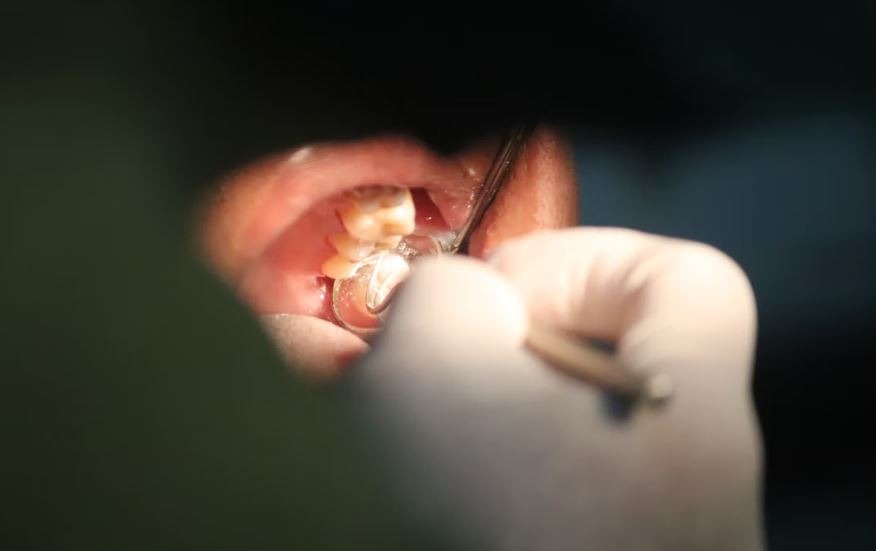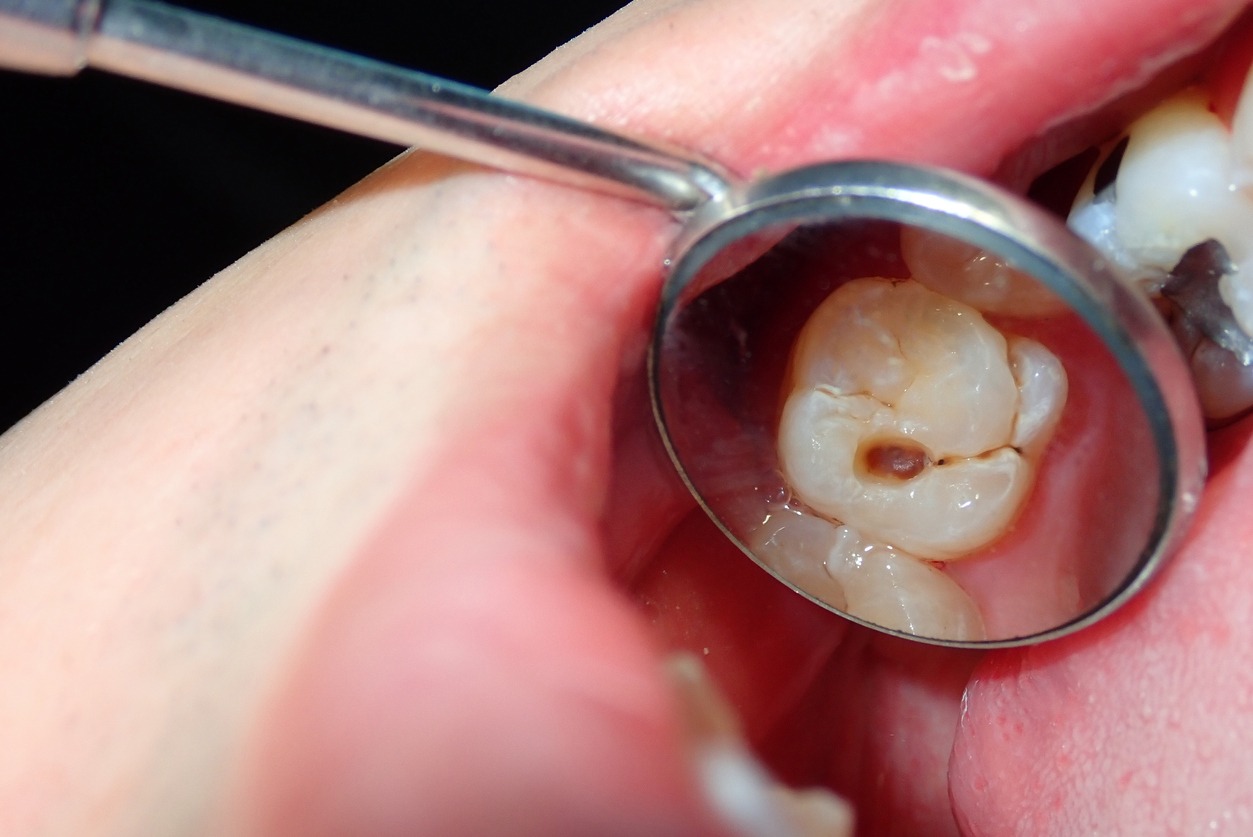For kids, teens, and adults, cavities are a serious issue with regard to oral health. When the bacterially-produced sticky substance known as “plaque” steadily accumulates on teeth and gums, cavities may develop. Plaque feeds on sugars in foods and produces acids when they are consumed. These acids eat away at the tooth’s hard outer layer, called enamel, causing the tooth to rot over time. A “white spot” that appears on the enamel of the teeth is a sign of early cavity detection. Tooth decay can be stopped or reversed at this point. The enamel may become damaged and develop a cavity if tooth decay is not treated.
Here Are 10 Guidelines To Prevent Cavities:
1. Recognize Cavity Signs and Symptoms
Specific symptoms and signs that are brought on by cavities include:
- One tooth experiences tooth sensitivity as opposed to several teeth experiencing it simultaneously.
- Bad breath because the same bacteria that causes cavities and tooth decay also cause bad breath; cavities erode your enamel, making it easier for bacteria to hide.
- Toothaches – among the most frequent causes of toothaches and sensitive teeth are cavities; toothaches brought on by cavities are typically worse after eating or drinking, and particularly after consuming sweets.
- Aches when chewing or biting
- Noticeable holes or dark spots
2. Use Fluoride Toothpaste
Fluoride is a mineral that can prevent, reduce, or stop early tooth decay and is present in some foods, water, and soil. It prevents mineral loss in dental enamel and reduces plaque bacteria’s capacity to produce acid. For the majority of people, twice-daily use of fluoride toothpaste offers adequate protection. Fluoride is widely used and accounts for 95% of toothpaste sales on average in developed countries, which is thought to be a significant factor in the 30-year decline in cavities.
3. Cut Down Sugary Foods and Drinks
Acid attacks on teeth are repeatedly brought on by snacking on sweets and starchy foods. Eating sugary foods at mealtimes is preferable because more saliva will be produced to help break down the resulting acid. Options for healthier snacks include cheese, fruit, and vegetables.
4. Consider Dental Sealant
The surface of back teeth receives a protective coating thanks to dental sealants. Plaque and acids that can cause tooth decay are blocked by the resin material. Due to the grooves, pits, and fissures present, the biting surface of back teeth is probably one of the most prone to cavities. Cleaning these places is challenging, especially if the grooves are deeper.
5. Drink Soda Through A Straw
Water is the best beverage for maintaining good oral health, but if you find yourself unable to give up soda, think about sipping it through a straw. When the straw avoids making contact with the teeth, this can lessen the risk of the sugary and acidic soda damaging teeth. Be aware that while diet soda has less sugar than regular soda, it also contains high levels of acids that may lead to tooth decay.
6. Have Regular Dental Cleanings
Maintaining good dental health requires routine trips to the dentist for oral examinations and teeth cleanings. Plaque accumulation is reduced by getting your teeth professionally cleaned. A dentist can assist in identifying issues early on when they are easier and less expensive to resolve. To help stop issues before they start, the majority of dentists also provide preventive care. Your dentist can give you advice on the most effective cleaning methods to help you practice better oral hygiene.
7. Eat more crunchy veggies and fruit
When eaten, fiber-rich foods like carrots, apples, and celery help to clean your mouth. The crisp texture eliminates the possibility of tooth decay-causing bacteria. The best natural defense against cavities is increased salivation, which is stimulated by the amount of chewing required to consume fibrous food. Twenty minutes after eating, saliva begins to neutralize acids.
8. Drink Water After Eating
Water makes a great mouthwash because it removes bacteria and food particles that can cause plaque. Additionally, water counteracts the effects of sweet and acidic foods. Fluoride is present in tap water in many countries, which works in a manner similar to fluoride toothpaste in preventing tooth decay. The best way to prevent tooth decay is to drink water frequently because a dry mouth makes tooth decay more likely to occur.
9. Regularly Floss Your Teeth And Brush Your Teeth Twice A Day
Brushing your teeth at least twice a day is one of the most important aspects of your at-home oral hygiene regimen. Before going to bed, one of these brushings should be done. To allow saliva to neutralize the acid after consuming acidic foods and beverages (such as fruit, soda, or wine), brushing must be avoided immediately afterward. If brushing your teeth after meals is not an option, rinsing your mouth with water is a good habit to get into.
To get rid of plaque and food debris stuck to teeth and gums, flossing should be done at least once a day in addition to brushing your teeth. Although it is difficult to reach with toothbrush bristles, the space between teeth is particularly vulnerable to the development of cavities. The importance of flossing before bed is comparable to that of brushing. For sure, floss, and dental hygiene will help you with preventing cavities.
Choosing the right toothbrush is also important, particularly if you have sensitive teeth and gums. Read our guide to Choosing the Best Toothbrush for Sensitive Teeth for more tips and recommendations.
10. Consume More Calcium
Calcium, phosphorus and other minerals make up teeth. Consuming foods high in calcium can help restore dental enamel and protect teeth from acids. Dark-green leafy vegetables, almonds, a variety of fortified beverages (soy, rice, juice), canned salmon or sardines (with bones), and of course, dairy products all contain calcium.
In Conclusion
Tooth decay is the second most common disease in humans, just after the common cold. In the US, 1 in 4 adults has untreated cavities, and 90% of adults have had at least one cavity. The majority of adolescents between the ages of 12 and 19 have cavities. Cavities also referred to as tooth decay can seriously harm both your oral and general health. Tooth decay can be so painful that it makes it difficult for you to sleep, eat, go to work or school, or simply enjoy life. Children who have cavities may experience more pain, chewing issues, and poor appearance.
It is fortunate that you can start caring for your mouth at any time. By making certain preparations today, you can avoid cavities tomorrow.
In case you are suffering from toothaches due to cavities, you may read our Guide to Choosing the Right Treatments for Toothaches for tips and recommendations.


